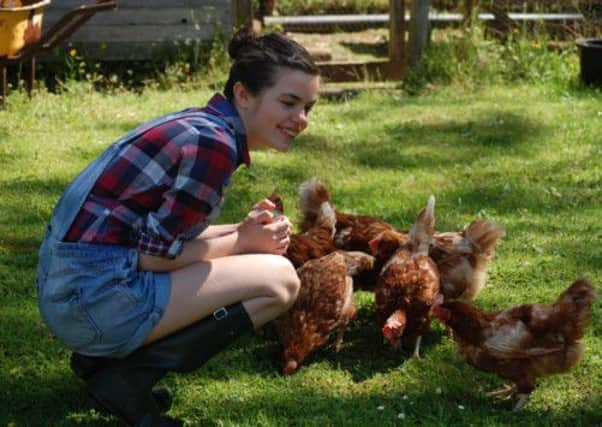Rescue hens make fantastic pets – with eggs a bonus


These days, most can be sold for a small price to the overseas market where they will go into chicken pastes and soups, but there is a happier alternative; hens that are a little over a year old can be rehomed and provide eggs, albeit at a lower rate than when they are farmed intensively, for the growing number of families around the UK who want pets with benefits.
The rehoming is largely down to the vision of one woman, Jane Howorth, who was haunted by a Panorama programme on farm animal welfare she saw as a teenager. As an adult, moving to Devon and acquiring a third of an acre of garden, she decided to do something about it and after persuading a local egg producer to give her his older hens when it was time to replace them she set up a charity to rehome more. That was in 2005, and in the intervening time, The British Hen Welfare Trust has found retirement homes for more than 370,0000 ex-battery and caged birds.
Advertisement
Hide AdAdvertisement
Hide AdWhen the last of my previous small flock of hens had shuffled off its roost, I put my name down to rehome some ex-caged birds. It was a long wait, but I eventually received an email giving me a time and a map reference near St Andrews and an instruction to bring plenty of cardboard boxes with air slits.
The rehoming day is run by the charity like a military operation. “The rehoming team have to get up very early, collect the hens, sometimes as many as 2000 in one go, and borrow a barn or a stable in which to hold them while their new owners come and collect. It is pretty dirty work,” says Jane Howarth.
She is keen not to berate farmers, without whose cooperation the charity couldn’t function. “We want to see a thriving British egg industry so they have to be treated with respect and understanding. In Scotland we need more farmers to get on board; we can pay the going rate for ex-caged birds and as we collect, it is an advantage to them.”
It is a great charity which provides hens that have been farmed intensively with a taste of natural life. Certainly getting my eight girls home was an experience. They weren’t the best looking of specimens; with bald patches, limps and scraggly tail feathers I worried that passers-by might report me for mistreating them.
The following day I opened up the hen house and tentatively the bravest made her way out blinking into the sunshine for the first time, as these hens would have been kept inside with little daylight. Within two days all were out into their enclosure and within a week they were scratching and pecking, cooing and clucking and I was getting around five eggs a day, although not always in the nesting box. An early problem was that they weren’t very steady on their feet and their sudden tipping over was alarming and hysterical in equal measures. A switch to high protein food cured them overnight.
A couple of weeks later we let them go free range and the gate was opened to a new life of scratching in the rose bushes and dabbling in the burn. They are very tame and unfazed by approaches from cats and dogs, quite happy to fight their corner if they stray too close. At the end of the day they make their way back to the hen house to be shut in.
The eggs they lay are sometimes misshapen, but with wonderful buttery yolks they taste better than anything you could buy in a shop.
In fact our only problem was coming up with names, while Limpy, Baldy and Skeletor would be the easiest to identify them, my 15-year-old daughter, Lizzie, objected and has christened them rather grandly, Una, Dulcie, Troilus, Vera, Petra, Cicely, Septima and Octavia. At the moment we can tell them apart, but as their feathers grow back and they get up to full strength it will be more difficult. Shouting “Hennies” does the trick, especially if you have some strawberry tops on offer and there is something very satisfying in seeing them come lolloping towards you from all corners of their new domain.
The next rehoming in Scotland is scheduled for August, visit www.bhwt.org.uk to register or make a donation.